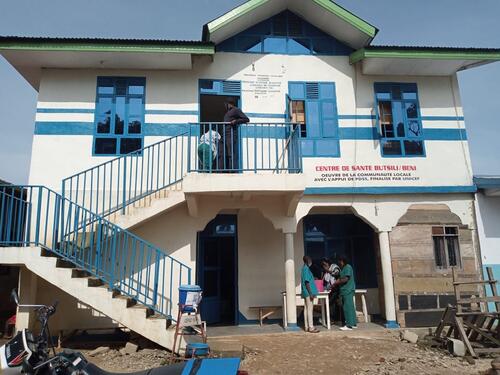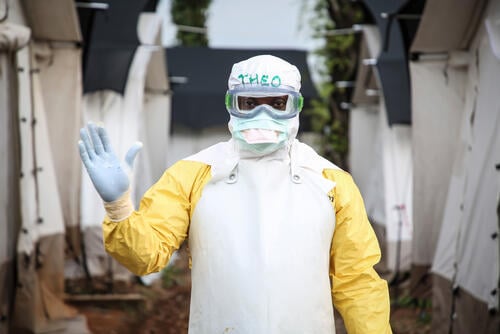Thirteenth Ebola outbreak declared over in DRC
Following a series of community deaths in North Kivu province, Democratic Republic of Congo (DRC), the DRC Ministry of Health declared an outbreak of Ebola on 8 October. The outbreak was concentrated in Beni health zone, and following 42 days since the last patient tested negative, and with no new cases reported, the outbreak was declared over on 16 December. This was the thirteenth epidemic in DRC, the third in North Kivu province and the second in Beni health zone.
DRC's 13th outbreak - information as of 16 December 2021; figures provided by DRC Ministry of Health via WHO.
11
11
8
8
6
6
Situation
The outbreak, declared by the Ministry of Health on 8 October, following the deaths of a number of people in the community, was small and lasted just over two months. There was a total of 11 cases recorded; 8 confirmed and three suspected.
The last person with Ebola was identified on 30 October; the last person was discharged after testing negative for Ebola on 4 November. Among the eight confirmed cases, six people sadly died.
The Beni health zone was one of the epicentres of the 2018-2020 Ebola outbreak in eastern Democratic Republic of the Congo. It is located about 50 kilometres from the town of Butembo. MSF teams have been involved in all responses, particularly in the face of the severe epidemic in North Kivu and Ituri, which was declared over in 2020.
A previous epidemic, the country’s twelfth, officially ended on 3 May 2021 in Butsili health zone.

MSF response to thirteenth outbreak
Médecins Sans Frontières (MSF) teams worked with the Ministry of Health until the epidemic was officially declared over.
In Butsili and Kanzulinzuli health centres, our response focused on triage, detection and isolation of people with suspected cases of Ebola. Our teams, alongside those of the Ministry of Health, carried out outpatient consultations, with free care for patients of all ages admitted to the isolation unit.
Our team rehabilitated and made structural improvements in Butsili, Kanzulinzuli and Mandrandele health centres, to help strengthen the capacity of the Ministry of Health to deal with future outbreaks. MSF also supplied medicines and food for the patients admitted to the isolation centre and their companions.
We also provided technical support to the surveillance commission by sending two epidemiologists, one of whom is an expert in Ebola virus management, and an MSF Health Promoter supervisor who supported the psycho-social care commission.
They provided technical support for monitoring community activities in order to locate and identify contact cases in the community, but also social monitoring to all high-risk contacts through the distribution of kits, which contain a telephone and food, to encourage people who were suspected cases to self-isolate, and to limit viral transmission in the community.
People at high risk, including contacts of confirmed cases and first responders, were vaccinated to contain the spread of the virus.
Previous outbreaks
Read more on DRC's tenth outbreak, in the country's northeast. DRC's eleventh outbreak was located in Équateur province, in the northwest. The twelfth outbreak was located in North Kivu province.



